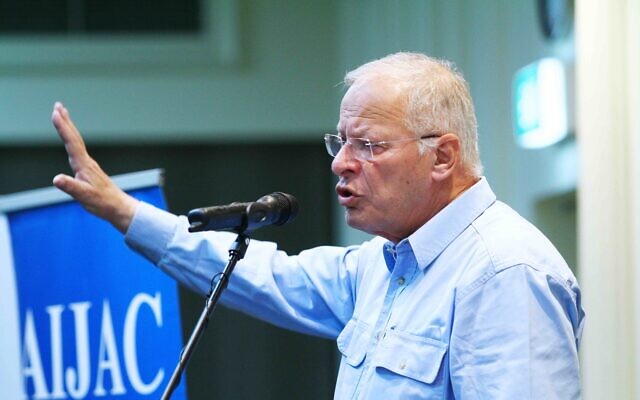Who will be next to recognise Israel?
Speaking from Israel, Ehud Yaari says a number of Arab leaders "are walking alongside the pool, waiting to jump in".
BAHRAIN, Sudan, Oman and Morocco are high on the list of possible contenders for the next breakthrough in normalising relations with Israel after the historic rapprochement between Israel and the United Arab Emirates.
That prediction came from acclaimed Israeli journalist and commentator Ehud Yaari in an online media briefing hosted by the Australia/Israel & Jewish Affairs Council. Speaking from Israel, he said a number of Arab leaders “are walking alongside the pool, waiting to jump in”.
Bahrain’s King Hamad Bin Isa al Khalifa “has been interested for a long time”.
Sudan, after the fall of General Omar al Bashir, is also a prime candidate, with informal ties to Israel dating back decades. The country craves Israeli agri-tech know-how as it wants to become the region’s breadbasket, said Yaari.
Oman is “interested” and Morocco has “very close cooperation under the table” with Israel. However, Kuwait “has taken a negative attitude” to the Israel–UAE accord, he said.
Meanwhile, “the Saudis are watching … are interested” after two decades of incrementally closer business ties with Israel, and low-key cooperation on security in the Red Sea and Suez Canal. But “Muslim sensitivities and the role [Saudis] want to play in the Islamic world” will slow any move to normalisation with Israel.
Moreover, Riyadh is conscious of its 2002 Saudi Peace Initiative, endorsed by the Arab League, which calls for the Arab world to recognise Israel in exchange for Israel’s withdrawal to its 1967 lines, a plan Yaari said “was spoilt by [former Palestinian Authority president] Yasser Arafat”.
Yaari described a “Netanyahu doctrine” of three steps – progressively closer ties with the non-aligned world, then closer ties with the Arab world, which are evolving, and finally an accord with the Palestinians.
He said Mahmoud Abbas has called on the Arab League to disavow the Israel–UAE accord. But the PA president has come under strong internal criticism for allowing the Palestinian agenda to slide from the radar.
The massive ammonium nitrate blast in Beirut has created political shockwaves, noted Yaari, with Hezbollah secretary-general Hassan Nasrallah under intense pressure following reports that shipments of ammonium nitrate have systematically been smuggled into Lebanon by Iran since 2013.
On prospects of a Joe Biden presidency, Yaari said there are questions about whether the US would return to negotiations with Iran to seek amendments that would allow it to rejoin the nuclear deal. But “it’s fairly safe to assume that policy towards Israel will be maintained”, as Biden’s foreign policy advisers are generally moderates from former president Bill Clinton’s administration.


comments